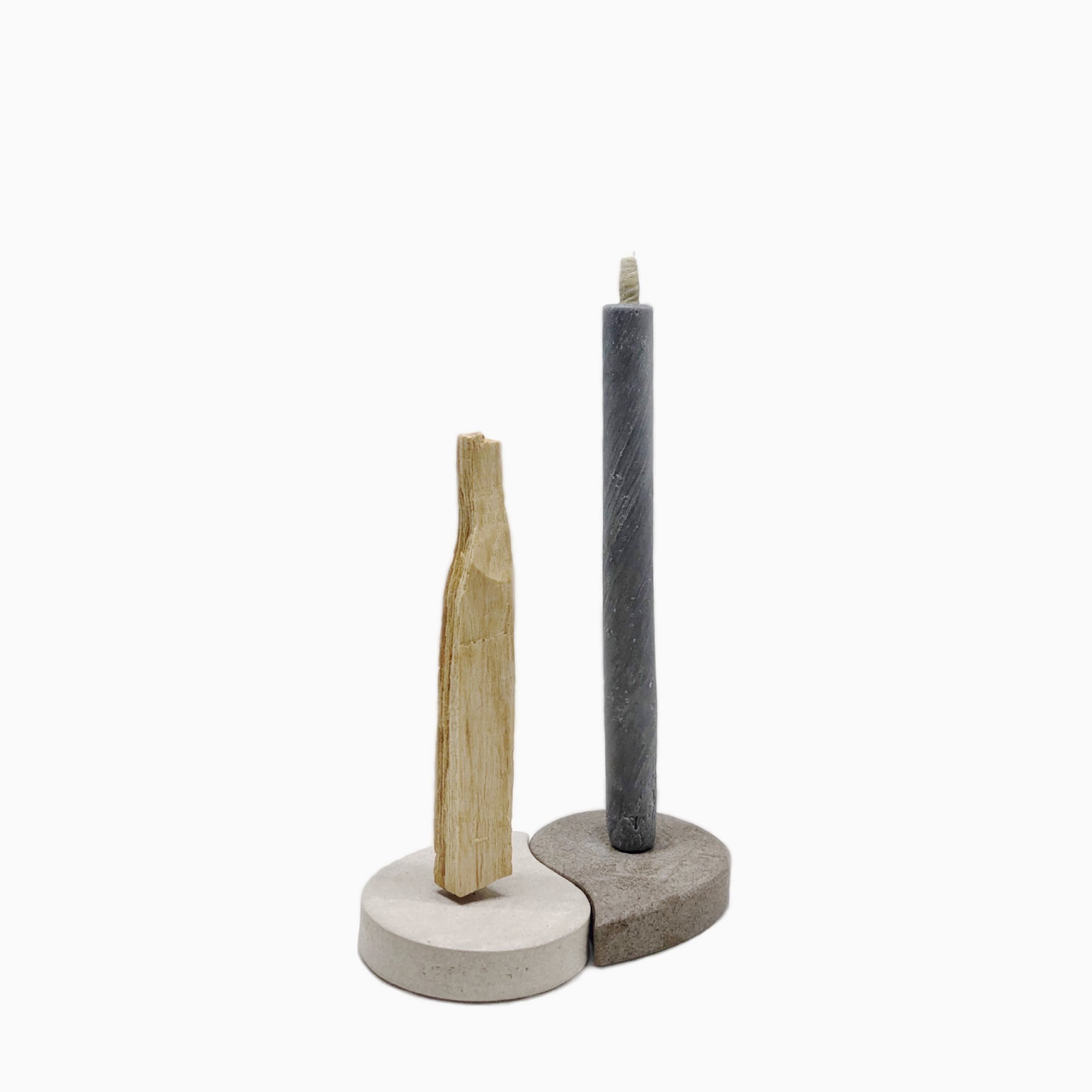Palo Santo & Candle Set in wooden box




Palo Santo & Candle Set in wooden box
1x Palo Santo
1x Palo Santo stand made of brick
6x Candles
Black: marinated with linen coal powder
White: marinated with salt
1x Candle stand made of brick
Material of candles: fruits of wax tree, Washi-paper, rush
Burning time of candle: approx. 90 minutes each candle
Handmade in Japan
How to burn Japanese candle safely
• Keep the candle at a safe distance from other items.
• Do not place flammable items above the candle. Japanese candles burn with a large, bright flame.
• Do not place lit candles close together or near heating device. It may cause the wax melted and dropped down.
• Use a candle stand with the correct size, according to the hole at the bottom of each candle.
• Secure the candle up right, so that it doesn’t wobble.
• Place the candle in place out of reach of wind and breezes, even if inside of the house. It may cause melting wax to drop down.
• During burning, keep the wick ca. 1cm: cut the black burnt wick with the candle snuffer or a metal tweezer, so that the flame stays stable.
• To extinguish, use the candle snuffer or a metal tweezer. Melted wax may splatter, if you extinguish the candle by blowing it out.
• While burning, keep candles within your sight. Do not leave the room without extinguishing the flame completely.
• Keep lit candles out of reach of children and pets.
About Traditional Japanese Candle
Lighting a candle may call to mind your ancestors or those who are far away. Perhaps the flickering of the flame feels like it is speaking to us.
Wick is made by winding dried grass around hollow cord of Japanese Washi paper which is made from paper mulberry or bush plants. The hollow core of the wick allows oxygen to be drawn up from the bottom so that the flame consumes more melted wax, thus increasing the combustion power and creating a powerful flame. Candle body is oſten made from natural ingredient such as fruit of the wax tree, lacquer tree, or rice brans.
Today, the traditional wisdom and ingenuity are in danger of existing affected by global trend of mass production. In Japan, a few producers continue such tradition and at the same time, preserve mountains by avoiding them unattended and causing natural disasters.
